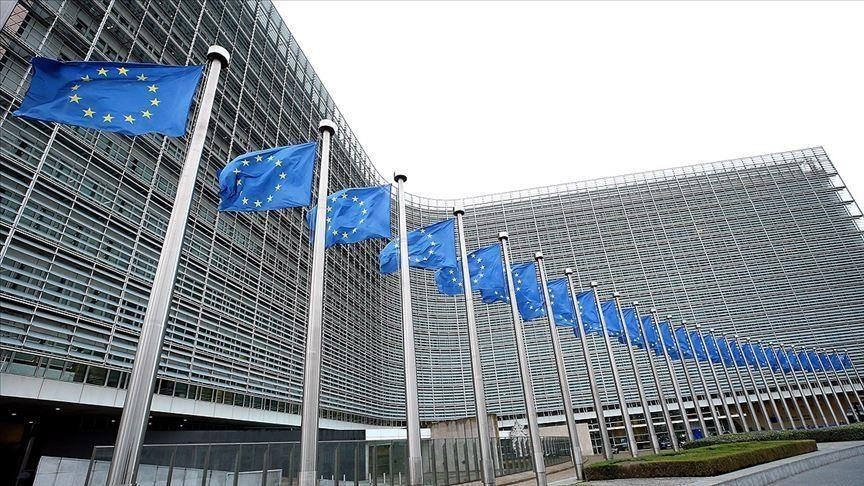AhlulBayt News Agency (ABNA): The European Union held Syria aid conference for the fifth consecutive year in Brussels on March 29 and 30.
The conference was attended by at least 77 delegations from 50 countries, 10 regional organizations and international financial institutions, and 17 UN agencies to discuss, virtually, the main aspects of the Syrian crisis. 8 representatives of civil society from Syria and other countries in the region also took part in the online event. The US was also a guest of the conference.
Ostensibly aimed at raising funds to support Syria and help mitigate the effects of the crisis, the conference has so far had little success and remained more of a clumsy humanitarianism show and sham defense of human rights than a real aiding initiative.
It, in its place, promotes a question: What is the EU goal behind holding the conference for the firth year?
Three drivers may be behind the so called Syria support meeting:
A nominal conference with paradoxical support to human rights
The EU-sponsored conference on Syria was held under the slogan of support for Syrian refugees whose displacement has been caused by the US and EU sanctions on Syria while Damascus has been in a fierce battle against foreign-backed terrorist groups over the past decade. There is little doubt that the Western sanctions have caused Syrian people's plights as terrorist fighters, on the other hand, targeted their security and daily life. The US's Caesar sanctions and EU's independent sanctions targeting finances to Syrian government prepared the ground for emergence of a massive economic crisis in the war-torn Arab country. Despite claims of support, so far the conference made no difference to the deteriorating economic conditions in Syria, giving reasons to many observers to suggest that the Europeans only intend to falsely pose as human rights supporters with much care about humanitarian help.
According to the UN, at the fourth conference, held in June 2020, participants pledged $5.5 billion to reconstruction of Syria during the same year, but the country saw no aids on the ground.
This year's conference announced the collection of more than $10 billion, of which $4.2 billion will be used to allocated to humanitarian needs inside Syria and $5.8 billion to support Syrian refugees and the countries hosting them. A look at the number of countries present at the conference makes it clear that not only such a sum was possibly not raised but also ways of spending of such a sum, if raised, are covered with ambiguity.
The closing report of the conference suggested that Germany donated nearly $2 billion, the US $596 million, the EU $560 million, Qatar $100 million, and the UAE $30 million. The total sum is very less than $10 billion as the target sum of the conference. Analysts argue that it makes no sense that the US and EU which themselves are the cause of Syrian suffering with their sanctions and even support to extremist fighters take a humanitarian gesture and give help to about 5.6 million Syrian refugees in Turkey, Lebanon, Jordan, Iraq, and Egypt.
A politically-motivated conference to delegitimate President Bashar al-Assad
Ostensibly, the US and Europe seek humanitarian aims behind the conference, but a deep look makes it clear that they seek political goals.
Western countries have been deeply concerned in recent years about the central government's progress in its fight against terrorism and the Syrian people's realization of the real nature of the radical and terrorist groups backed by the West. The West is well aware of the fast increasing popularity and legitimacy of the Syrian President Assad who continues his push against a litany of barbarous terrorist militias came to Syrian from many foreign countries. In such circumstances, the EU holds the donation conference representing West’s last efforts to delegitimate Damascus government and pave the way for Assad ouster from power.
Establishing obstacles ahead of Eastern powers
Currently, the Russian and Chinese influence gain in West Asia is presenting itself as a challenging issue for the Western actors which for long years played in the region unchallenged.
Russia has shown a keen interest in a serious presence in West Asia since 2015 when it became involved in the anti-terror battle in Syria. China showed the same strong interest by advancing in the region the "Road and Belt Initiative" that aims to revive the ancient Silk Road.
Standing on the opposite side are the Western powers which are severely worried about the two Asian heavyweights bolstering their power regionally and globally. One of the Western responses to this clout gain by Moscow and Beijing is financial support to Syria to pave the way for rise of a pro-Western political system in the Arab country in the future to help check the Eastern powers' foothold in Syria.
/129

